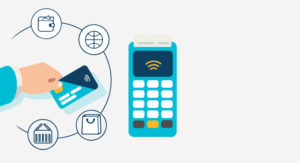Information about New Indian Digital Currency

If you don’t know already, the Digital Rupee is India’s own regulated cryptocurrency that will be soon launched by the RBI. On February 1, while announcing the annual budget for 2022-23, Union Finance Minister “Nirmala Sitharaman” announced to the whole country that RBI will be launching an Indian digital currency in the financial year 2022-23. The currency will be called “Digital Rupee” and will be based on blockchain technology. Digital Rupee will be the rival for other cryptocurrencies such as Bitcoin, Ethereum, and more. There’s a lot of speculation about the Indian Digital Rupee.
During the budget announcement, the finance minister said that India’s digital currency will be launched by the Reserve Bank of India (RBI). She also stated that the Indian rupee digital currency will be a cheaper and more efficient method of sending and receiving money throughout the country. The launch of the new Indian digital currency is already under work with RBI making sure every step is followed through carefully. The RBI is working on an implementation strategy that makes sure that every part of the general populace has access to the currency while ensuring the safety of the users. As of now, there’s no set/fixed Indian digital currency launch date.
The Digital Rupee can help the country lessen the usage of the older cash system.
Indian Digital Rupee: Coming This Year?
New Indian digital currency will operate on the well-known blockchain technology, which is the basis for all the other cryptocurrencies globally. There’s no news on whether or not users will be able to mine the currency, if yes, will it be considered legal?
India isn’t the first country to launch its own cryptocurrency. Before the Indian rupee digital currency, China already started and tested its cryptocurrency in several cities. The US and UK governments have also been considering starting their own cryptocurrency.
While the government hasn’t proposed any bills on crypto, the two primary regulatory clarifications from the finance minister have made it clear that digital currency is a growing industry. As RBI will be launching the cryptocurrency, there will be some heavy regulations surrounding the currency, ensuring safety, efficiency, and fair transactions. Plus, as RBI will be entering the blockchain scene, it suggests that governments are seeing the benefits of blockchain technology and how it can help consumers.
However, the hefty 30% tax on crypto transfer gains is sure to halt the new users entering the space. From here on, we can only wait and see where this Digital Rupee idea proposed by the Indian Government will head to.
What is CBDC in India?
Central Bank Digital Currency is what CBDC stands for. CBDC is the legal tender issued by a central bank in digital form, it’s the same as a fiat currency and is exchangeable one-to-one with fiat currency. The only difference between the two is their form.
What’s the Difference Between CBD & Cryptocurrency?
CBDC is a digital or virtual currency, but it’s not similar to other private currencies that have gained popularity over the last decade. As per the RBI, virtual currencies aren’t as useful as traditional money as they aren’t commodities and they have no intrinsic value. Whereas a CBDC is centralized, cryptocurrencies are decentralized and don’t represent the finances of a particular person or entity.
The CBDC can also reduce transaction demand for bank deposits, but they reduce settlement risks, being-risk free, CBDC can lead to a shift from traditional banking services. If banks lose deposits, their ability to create credit will be limited and central banks can’t provide credit to the private sector.
What’s the Need for CBDC in India?
There’s been a slow yet accelerating shift of digital payments combined with an all-time low interest in cash usage, especially for small-value transactions. While CBDC is highly unlikely to replace the use of cash, the currency-to-GDP ratio, if switched to CBDC, would cut the cost of printing, transporting, storing, and distributing physical currency.
Future Plans by RBI
The RBI has been figuring out the use cases and building an implementation strategy for introducing the CBDC with almost zero disruption to the cash-only economy. According to the Central Bank, several crucial elements need to be designed and tested before the digital rupee in the form of CBDC can be introduced. The RBI is working out implementation models and strategies, and use cases of the digital currency.
When’s the Expected Launch of Digital Rupee?
Even if the RBI is ready to launch the Digital Rupee for everyone, it’s impossible before the crypto law is passed and approved in Parliament. Some changes will be required in the RBI Act as well before the digital rupee is launched in India. Some of the most crucial changes in the RBI Act are:
- Coinage Act
- FEMA
- Information Technology Act
Without the crypto bill, and small changes in the RBI Act, there’s no way that the Indian digital rupee is launched in the country.












